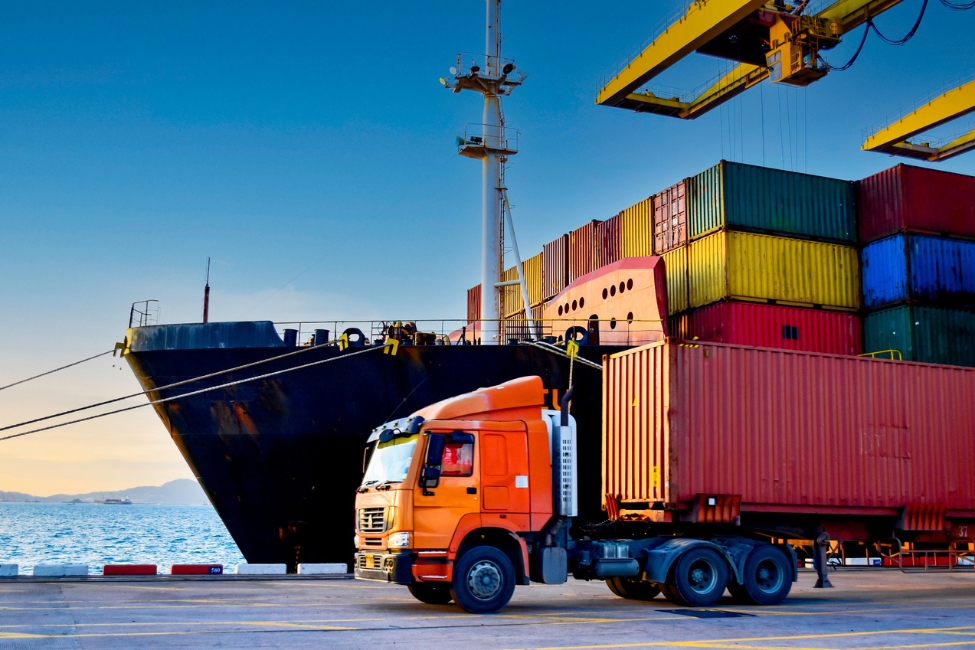FAU Report: Supply Chain Expands to Highest Reading as Tariffs Loom

The logistics industry saw record expansion compared to the past two years, but uncertainties around tariffs and potential economic conditions pose challenges for the supply chain in the coming months, according to researchers at Florida Atlantic University and four other schools.
The logistics industry saw record expansion compared to the past two years, but uncertainties around tariffs and potential economic conditions pose challenges for the supply chain in the coming months, according to researchers at Florida Atlantic University and four other schools.
The January Logistics Manager’s Index (LMI) reads in at 62.0, up (+4.7) from the December 2024 reading. A score above 50 indicates that the logistics industry is expanding, while a score below 50 indicates that the industry is shrinking. This is the fastest reading of expansion in the overall index since June 2022. Five out the eight metrics used to calculate the score saw an increase.
“The incoming U.S. presidential administration has been vocal around what changes they expect to and subsequently have made to the U.S. global trade relationship, and as a result supply chains are required to adopt a nimble and agile footing,” said Steven Carnovale, Ph.D., an associate professor of supply chain management in FAU’s information technology and operations management department.
The LMI, a survey of director-level and above supply chain executives, measures the expansion or contraction of the logistics industry using eight unique components: inventory levels, inventory costs, warehousing capacity, warehousing utilization, warehousing prices, transportation capacity, transportation utilization, and transportation prices. Along with FAU, researchers at Arizona State University, Colorado State University, Rutgers University, and the University of Nevada at Reno calculated the LMI using a diffusion index.
Steady economic growth in the United States over the past six months helped bolster January’s score; increased inventory levels also helped as firm built up their inventory levels to head off any potential added costs due to potential tariffs. Warehousing capacity, on the other hand, dropped to 51.7, signaling that it is near contraction. The drop in capacity led to increased warehousing prices at 73.1, the highest levels since February 2023.
“The decrease in capacity, and subsequent cost increase, is likely the result of two forces intersecting. First, firms knowing that tariffs were looming likely stockpiled goods that were likely to be exposed to the tariffs prior to their announcement/finalization, and second the aftereffects of the holiday season push/return cycle,” Carnovale said. “As the months move forward, watching the split between where and how the capacity/pricing dynamics are shifting between upstream and downstream may serve as a harbinger of things to come."
-FAU-
Latest News Desk
- New Study on Hope Among U.S. Youth Reveals Key to Safer SchoolsAs the new school year begins, a study by FAU's College of Social Work and Criminal Justice reveals that hope in adolescents is a powerful protective force against bullying and cyberbullying.
- FAU Celebrates Summer 2025 GraduatesFlorida Atlantic University conferred nearly 1,800 degrees over the course of three in-person commencement ceremonies in the Carole and Barry Kaye Performing Arts Auditorium.
- 'Virtual' Socializing Greatly Eases Isolation in Seniors with DementiaResearchers analyzed 1,900 virtual events to find the best indicator of social engagement in older adults with dementia. Group dynamics - more than individual traits - drove connection and eased isolation.
- Could Nanotechnology Spark Elementary Students' Curiosity in Science?FAU College of Education researchers have turned to nanotechnology - an increasingly relevant and multidisciplinary field - to cultivate critical thinking and decision-making skills in elementary students.
- FAU Publishes Initial Annual Report: Florida Office of Ocean EconomyHoused at FAU, the Florida Office of Ocean Economy was created to position the state as a global leader in ocean-linked industries and to build the foundation for a thriving ocean economy.
- FAU Professor Highlighted for Park Designed for Coastal ResiliencyJeffrey E. Huber, professor in the School of Architecture within the Dorothy F. Schmidt College of Arts and Letters at Florida Atlantic, was recently featured in Architectural Record magazine for a park.






